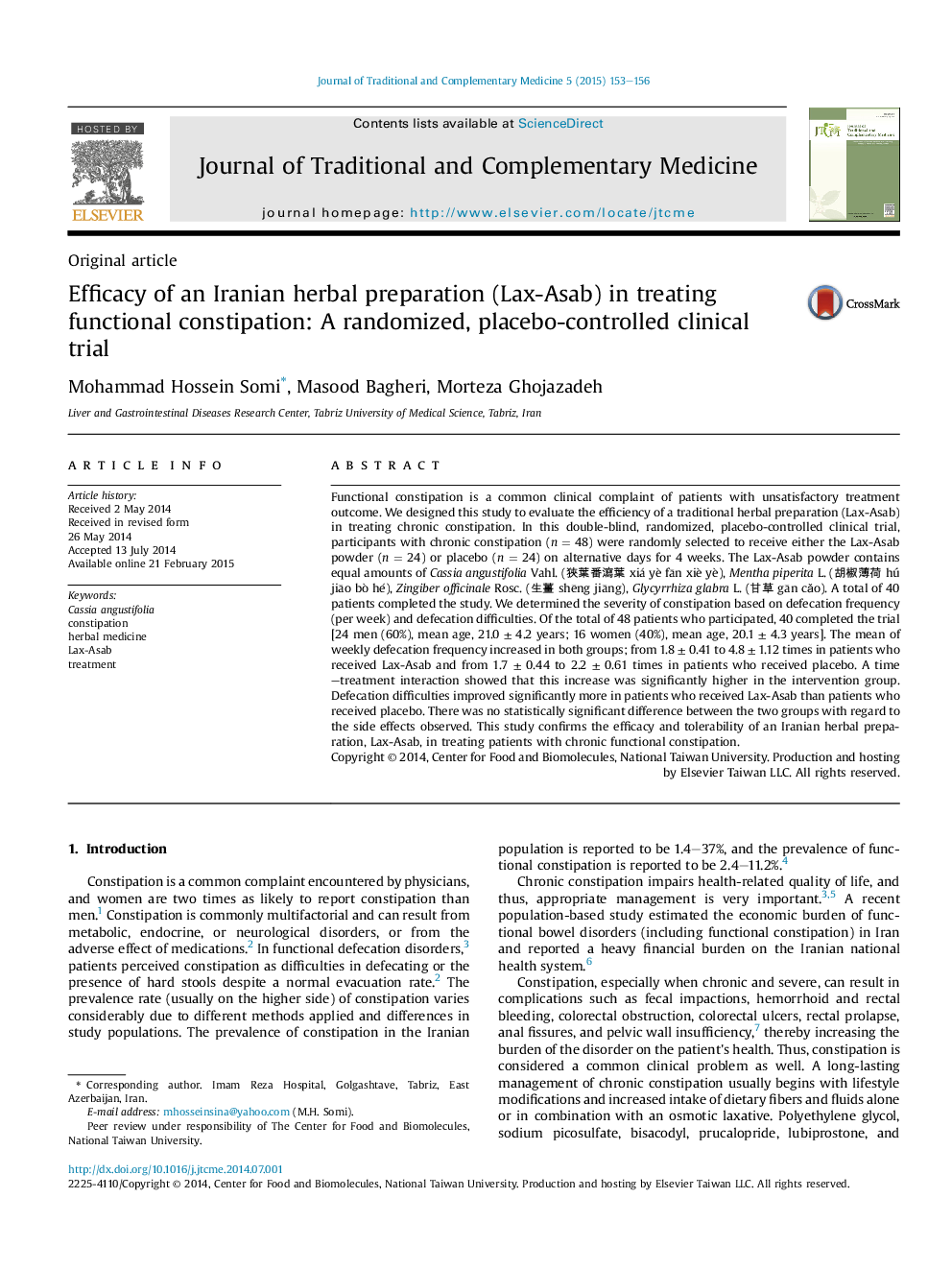| Article ID | Journal | Published Year | Pages | File Type |
|---|---|---|---|---|
| 3099761 | Journal of Traditional and Complementary Medicine | 2015 | 4 Pages |
Functional constipation is a common clinical complaint of patients with unsatisfactory treatment outcome. We designed this study to evaluate the efficiency of a traditional herbal preparation (Lax-Asab) in treating chronic constipation. In this double-blind, randomized, placebo-controlled clinical trial, participants with chronic constipation (n = 48) were randomly selected to receive either the Lax-Asab powder (n = 24) or placebo (n = 24) on alternative days for 4 weeks. The Lax-Asab powder contains equal amounts of Cassia angustifolia Vahl. (狹葉番瀉葉 xiá yè fān xiè yè), Mentha piperita L. (胡椒薄荷 hú jiāo bò hé), Zingiber officinale Rosc. (生薑 shēng jiāng), Glycyrrhiza glabra L. (甘草 gān cǎo). A total of 40 patients completed the study. We determined the severity of constipation based on defecation frequency (per week) and defecation difficulties. Of the total of 48 patients who participated, 40 completed the trial [24 men (60%), mean age, 21.0 ± 4.2 years; 16 women (40%), mean age, 20.1 ± 4.3 years]. The mean of weekly defecation frequency increased in both groups; from 1.8 ± 0.41 to 4.8 ± 1.12 times in patients who received Lax-Asab and from 1.7 ± 0.44 to 2.2 ± 0.61 times in patients who received placebo. A time–treatment interaction showed that this increase was significantly higher in the intervention group. Defecation difficulties improved significantly more in patients who received Lax-Asab than patients who received placebo. There was no statistically significant difference between the two groups with regard to the side effects observed. This study confirms the efficacy and tolerability of an Iranian herbal preparation, Lax-Asab, in treating patients with chronic functional constipation.
Graphical abstractFigure optionsDownload full-size imageDownload as PowerPoint slide
